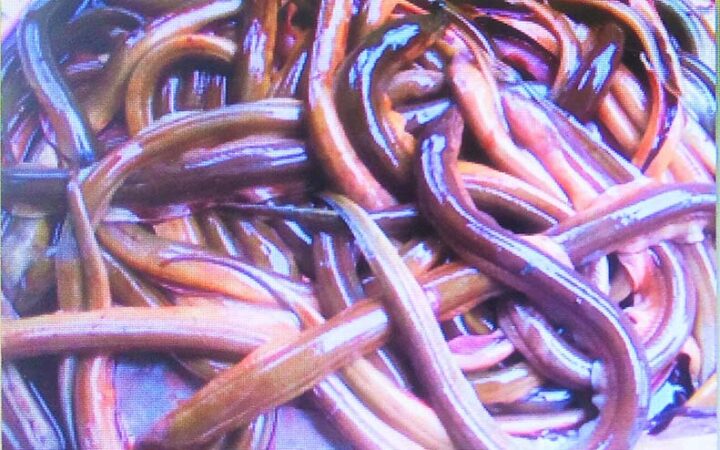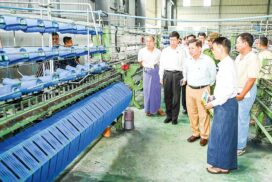Myanmar Fisheries Federation has been conducting induced breeding of eel in research farms in Twantay Township, Yangon on a trial run from the first week of July and eel culture is thriving.
Injections of human chorionic gonadotropin (HCG) were given to 100 female eels and sent to the farm in June. In the first week of July, eggs are floated on the water and an eel can reproduce approximately 150-200 eel larvae. The growth of larvae and research activities will be further undertaken this year.
Myanmar’s eels from the wild are caught and primarily delivered to China. MFF is researching artificial seedlings for eel production businesses to prevent native species from extinction triggered by over-exploitation from natural habitats.
“Female eels are sent to the farm after injection. Eel feeds are snail meal and plant-based protein sources. Some male eels are also put into the lake. A floating mass of foam is seen during maturation and spawning periods. Eels lay eggs in a foam nest. They will record the growth rate of eels, eel population and growth period to market size. The research achieved success with larvae culture. Research activities will continue. Technology will be disseminated for the breeders as eel farming can be done everywhere and it can increase the income of those working on a manageable scale,” said Dr Toe Nanda Tin, MFF senior vice-president.
Successful eel farming on a commercial scale can be seen in fields and near fish ponds in Viet Nam. Myanmar can now produce eel larvae. Therefore, artificial methods of eel production and eel larvae will be distributed to the breeders. China and some ASEAN countries have conserved fish, shrimp and eel genetics for sustainable aquaculture. Myanmar’s Fisheries Department has also succeeded in fish and shrimp hatching under artificial conditions. The department is also providing technical assistance for the breeders so that they can be directly involved in artificial breeding to enhance the rural livestock sector.
A pedigree and genetic conservation system for the sustainable utilization of fishery products is required. It can create a sustainable supply chain for local consumption and exports. The commercially valued eels will be exported to China in July. — Nyein Thu (MNA)/GNLM
Artificial seedling for eel production reaps success
- July 23, 2022
- 1062














